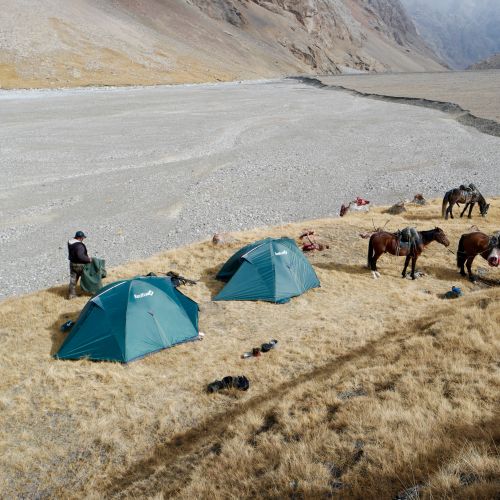There are no obligatory immunisations for travellers to Kyrgyzstan although you should be current on Typhoid, Tetanus Polio and Hepatitis A. It’s a good idea to ask your local GP for advice on the best immunisations as well as preventative measures.
Drinks and food
Kyrgyzstan’s food is primarily based on meat and rice. There are numerous other options for salads and vegetable choices. You’ll be able to taste local cuisines as you travel, and often overlap with those of other cultures.
With regard to alcohol, options are usually limited to vodka and beer. Anyone looking for something different – Scotch or Gin for instance – must purchase it duty-free and take it home. However, be advised mixers, including tonic water are very difficult to locate in Central Asia!

Cultural Sensitivity
You will often interact with the locals, all with their distinctive customs and traditions. We ask you to show respect and consideration to the locals. The tour guides and tour guides will always be able provide you with the appropriate advice.
Central Asia has a laid relaxed approach to Islam. This is the first thing you must know about traveling there, especially in cities and towns. You won’t believe how long the skirts of women are in places like Bishkek! It is an Muslim zone, therefore it is imperative to be mindful in certain areas. Both genders can wear T-shirts and shorts. When visiting mosques, women must cover their shoulders by wearing trousers or skirts. Men should stay away from wearing shorts.
80percent of the people is Islamic with just a little over 15% following
Russian Orthodoxia.
Religion and Language
Kyrgyzstan was one of the two former Soviet Republics in Central Asia that retained Russian as their official language. The early 90’s saw Kyrgyzstan became an official bilingual nation, adding Kyrgyz as another official language. Because of Soviet policies, you can meet ethnic Uzbeks as well as Tajiks in certain areas of Kyrgyzstan.
More information about Kyrgyzstan Tours see our webpage.

